Overview of the Animal Kingdom and Its Phyla
1/29
There's no tags or description
Looks like no tags are added yet.
Name | Mastery | Learn | Test | Matching | Spaced | Call with Kai |
|---|
No analytics yet
Send a link to your students to track their progress
30 Terms
What are the general characteristics of the Animal Kingdom?
Eukaryotic, multicellular, heterotrophic, and range in size from a few cells to many tons.
What percentage of the Animal Kingdom is made up of invertebrates?
Over 90%.
What are the two main classifications within the Animal Kingdom?
Invertebrates and vertebrates.
What are the three types of symmetry found in animals?
Radial symmetry, bilateral symmetry, and asymmetry.
What is radial symmetry?
A body plan that can be divided into similar halves around a central axis, like a circle.
What is bilateral symmetry?
A body plan that has two sides and can be divided in half evenly, like a person.
What type of symmetry do sponges exhibit?
Asymmetry.
How do sponges benefit from diffusion?
They use diffusion for gas exchange, circulation, and respiration.
What is the primary method of nutrition for sponges?
Filter feeding through incurrent pores.
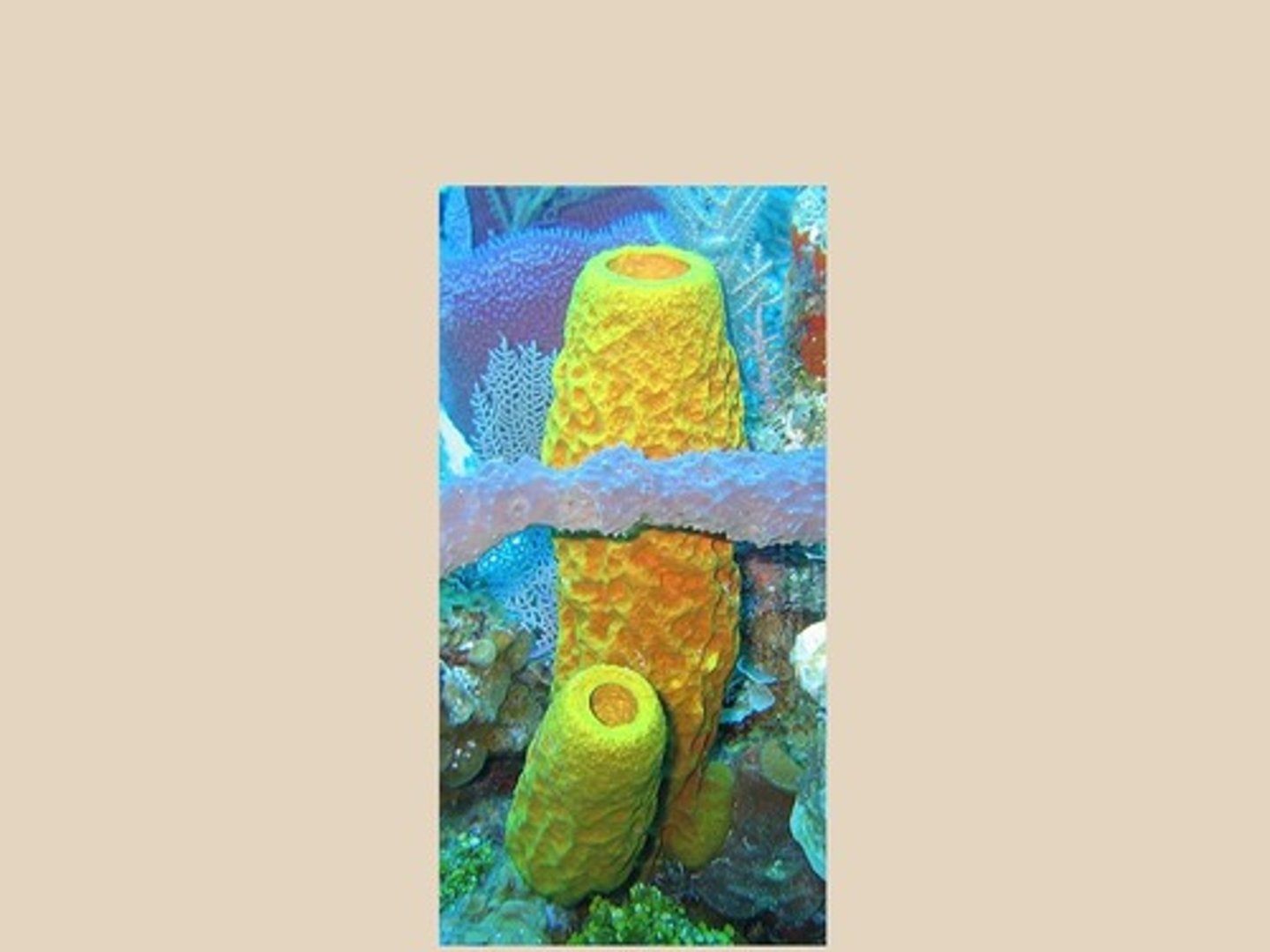
What are collar cells in sponges?
Cells that create a water current with flagella and help in feeding.
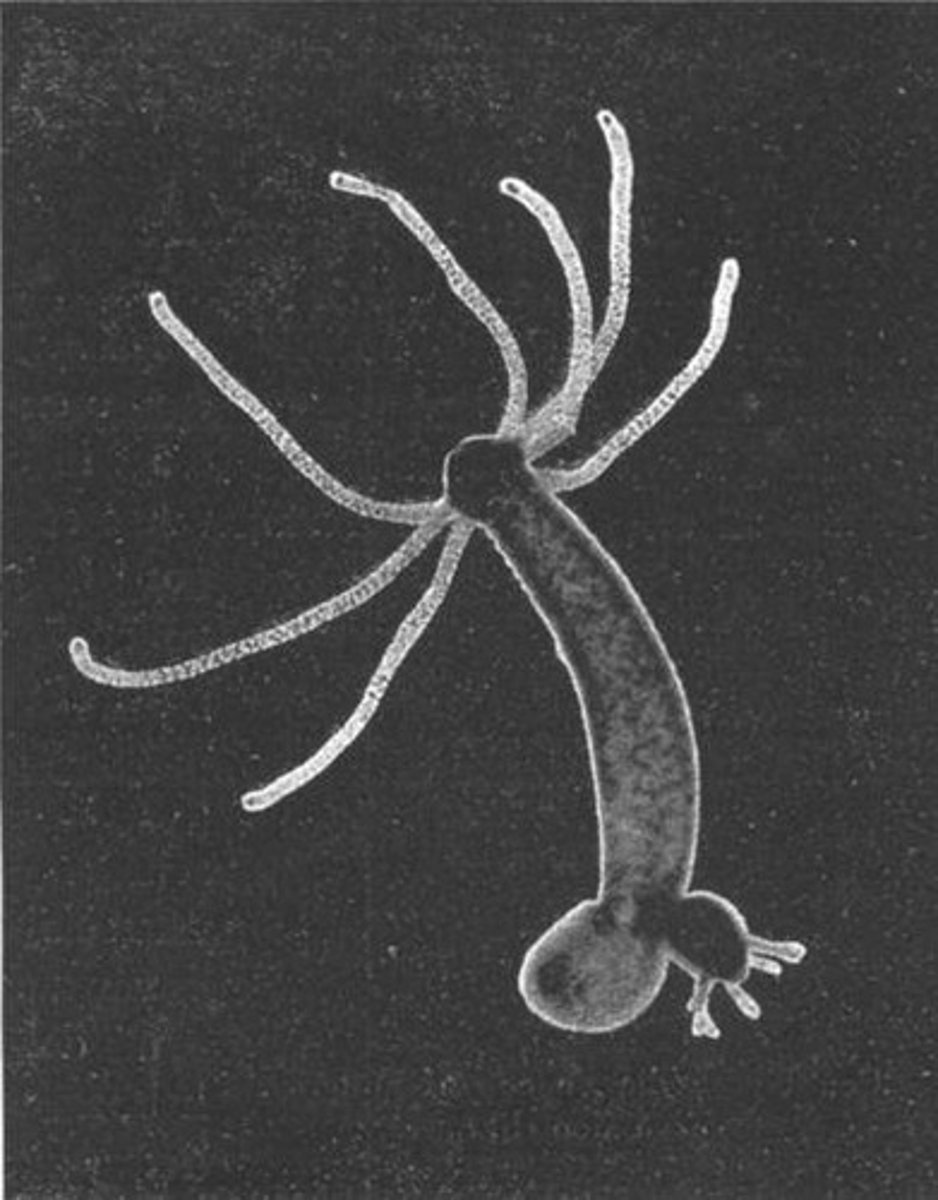
What are the three categories (orders) in the phylum Cnidaria?
Hydrozoa (Hydras), Scyphozoa (Jellyfish), and Anthozoa (Corals & Sea Anemones).
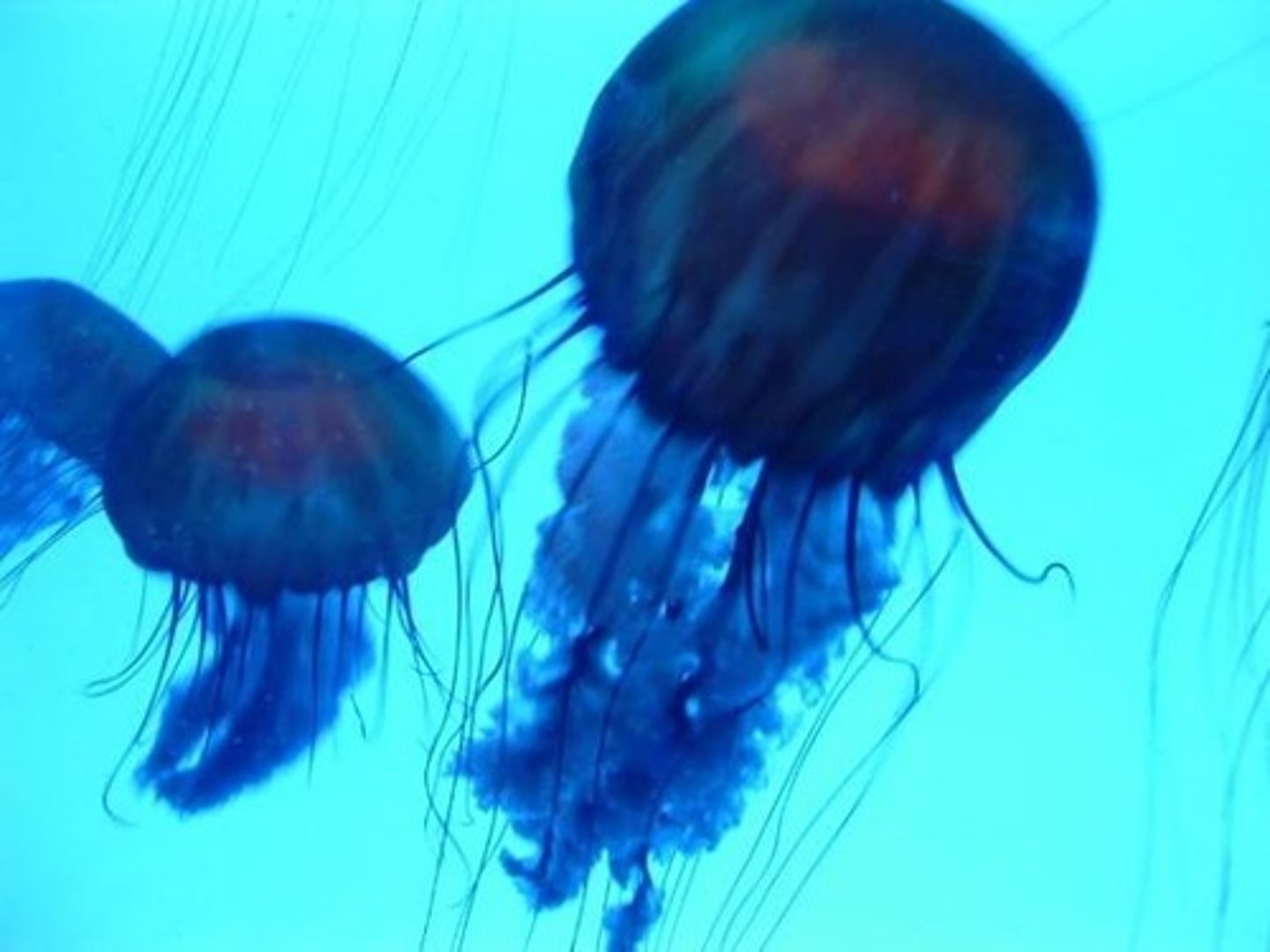
What type of symmetry do cnidarians exhibit?
Radial symmetry.
What is a nematocyst?
A specialized cell in cnidarians that contains a stinging structure used to capture prey.
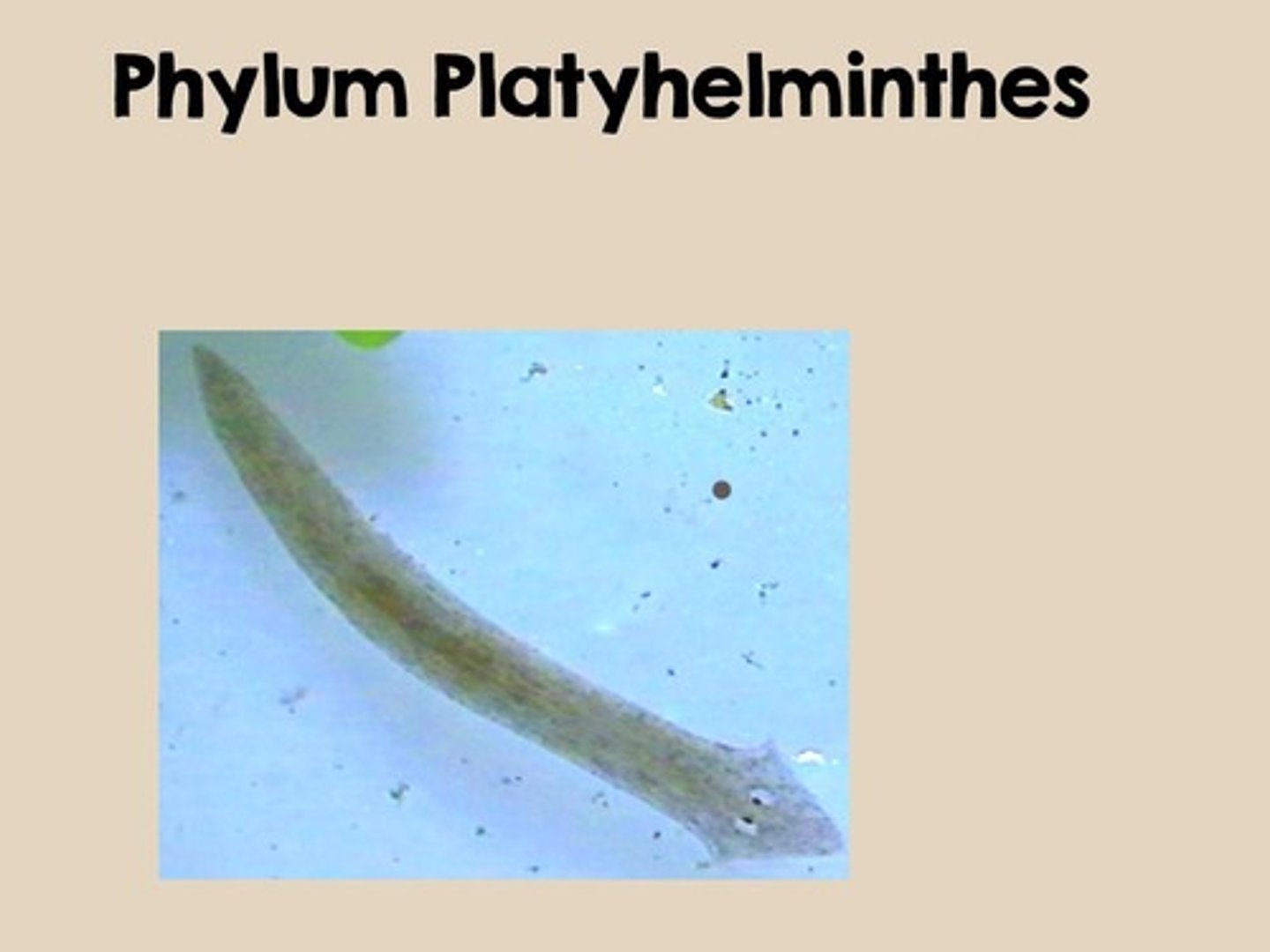
What is cephalization?
The concentration of sensory organs into a head region.
What is the primary method of reproduction in flatworms?
Asexual reproduction through regeneration and sexual reproduction as hermaphrodites.
What are the main characteristics of roundworms (phylum Nematoda)?
Parasitic, have a cuticle, and use diffusion for respiration.
What is the body structure of segmented worms (phylum Annelida)?
Bodies divided into segments called septa.
What are the four major body parts of a mollusk?
Head, foot, visceral mass, and mantle.
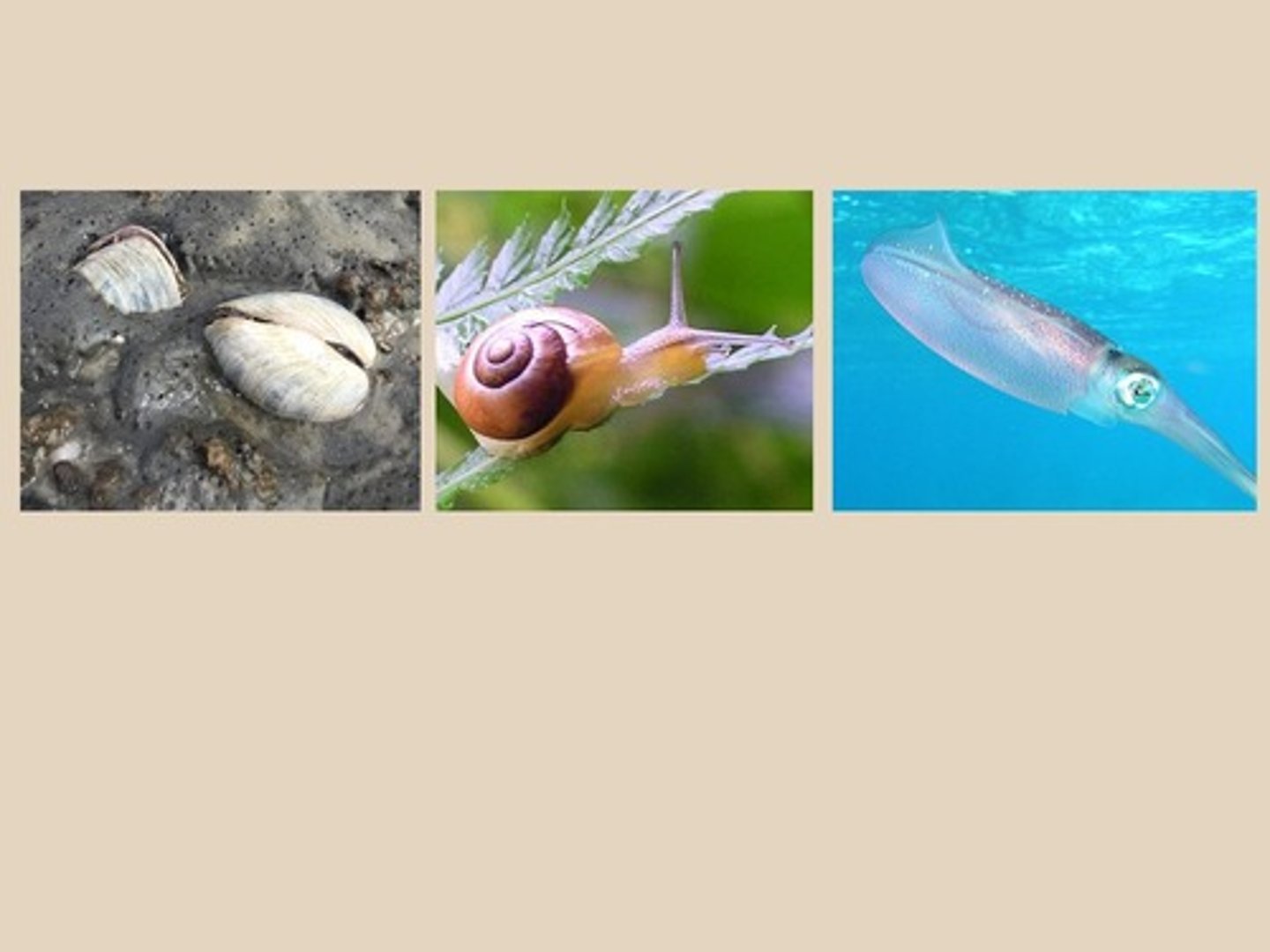
What type of circulatory system do mollusks typically have?
Open circulatory system.
What is a radula?
A tongue-like structure in mollusks used for scraping food.
What does the term 'Echinodermata' mean?
Spiny-skinned.
What type of symmetry do echinoderms exhibit?
Radial symmetry.

What is the primary method of reproduction in echinoderms?
External fertilization.
What are the five classes of echinoderms?
Asteroidea (sea stars), Echinoidea (sea urchins), Holothuroidea (sea cucumbers), Ophiuroidea (brittle stars), and Crinoidea (sea lilies).
What are the three subphyla of Arthropoda?
Crustacea (crustaceans), Chelicerata (spiders), and Insecta (insects).
What is the significance of the exoskeleton in arthropods?
It provides support and protection but requires molting to grow.
What type of circulatory system do arthropods have?
Open circulatory system.
What are the specialized mouthparts of Chelicerata called?
Chelicerae.
What are the three main body segments of insects?
Head, thorax, and abdomen.
What is the function of spiracles in insects?
They are openings that allow oxygen to enter and circulate through the tracheae.